May 27, 2025 | 03:53 GMT +7
May 27, 2025 | 03:53 GMT +7
Hotline: 0913.378.918
May 27, 2025 | 03:53 GMT +7
Hotline: 0913.378.918
The Mekong Delta region entered the production of summer-autumn rice crop 2022 in the context of high input prices, especially fertilizer. This becomes a difficult problem and a big challenge for farmers and the local agricultural industry in the region.
In 2016, the MARD issued guiding document No. 1334/BNN-TT on reducing the number of sowing seeds. After five years of implementation, localities in the Mekong Delta received many propaganda solutions, training programs, and agricultural encouragement models, ... This has helped farmers to realize and implement a drastic reduction in the number of sowing seeds. It is one of the necessary solutions to help farmers reduce input costs and earn more profits from rice farming.
According to Deputy Minister of MARD Le Quoc Doanh, there are currently only two ways to develop the rice industry: improve the quality of rice grains and reduce production costs. According to the deputy minister, the current rice yield has reached the threshold and the reduction of costs, especially saving fertilizer, needs to be prioritized. The deputy minister gave an "alarming" number - the efficiency of nitrogen fertilizer use by farmers was from 60 to 65%, exceeding the needs of rice plants.
According to a preliminary report on crop production for the summer-autumn crop 2022 of the Department of Crop Production (MARD), in the Mekong Delta provinces, the amount of seed sown below 100 kg/ha has increased by 0.29% compared to the previous summer-autumn crop. The rate of sowing seeds from 100 to 150 kg/ha increased to 0.97%.
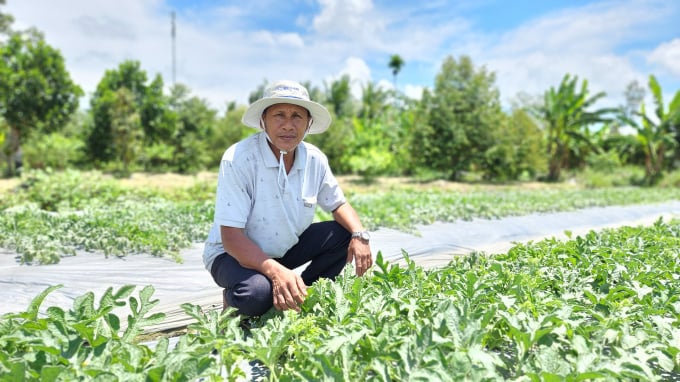
The area of summer-autumn rice decreased due to farmers changing the crop structure for higher economic efficiency. Photo: Kim Anh.
Additionally, the rate of application of mechanization in the whole region is at a high level. 100% of farmers apply mechanization in the tillage stage, 95% harvest rice by machine, and 80% of farmers apply post-harvest drying.
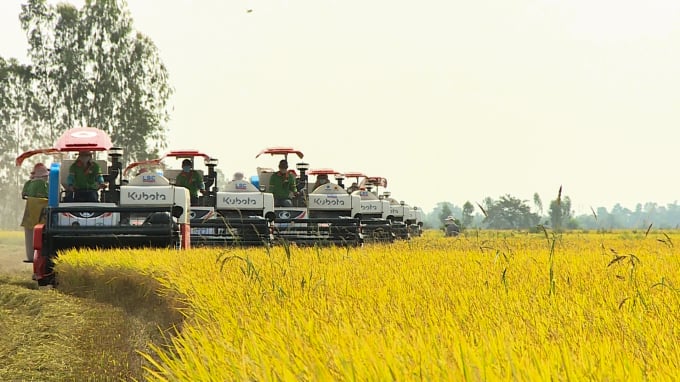
Farmers promoted mechanization in rice production. Photo: Kim Anh.
The above methods have contributed to reducing the input costs of seeds, fertilizers, and pesticides to about VND2 - 3 million/ha, depending on the production area. In particular, according to statistics from the Ministry of Finance, in the summer-autumn crop of 2022, the average planned rice production cost in the provinces and cities of the Mekong Delta is VND4,016/kg.
In the context of high prices of fertilizers and other inputs, cost reduction implementation has caused production costs to increase insignificantly, ensuring profit for rice farmers.
Deputy Minister of MARD Le Quoc Doanh excitedly commented that the 2022 summer-autumn crop is relatively favorable for farmers in the Mekong Delta, thanks to the efficiency of large irrigation projects. These projects have benefited production, especially rice production. The VnSAT project creates a new atmosphere for the region. Scientific and technical advances have been expanded and used more effectively by farmers. “A clear radical shift in rice production has been witnessed over a long period. In the context of fertilizer prices increasing quickly and sharply, farmers overcame challenges and took good care of their rice fields, "said Deputy Minister Doanh.
Aromatic and specialty rice varieties reached 15.24%, and high-quality rice varieties reached 68.33% in the seed structure of the whole Mekong Delta region. The rate of certified and original rice varieties utilization was over 75%. These impressive figures once again confirm that farmers are now getting used to producing closely following market trends, focusing on improving the quality of rice grains to increase value. It is a crucial step in increasing the competitive advantage of Vietnam's rice export industry.
An Giang province, one of the localities with a large rice area in the Mekong Delta, is a typical example. According to the provincial Department of MARD, in the summer-autumn crop of 2022, farmers in An Giang province sowed 221,058ha. After harvesting the first 10% of the rice area, the average yield is 5.6 tons/ha. The most popular high-quality rice varieties are OM18, OM5451, and Dai Thom 8.
Recently, the An Giang Department of MARD and An Giang Import-Export Joint Stock Company signed a memorandum of understanding on cooperation in building a chain of production and consumption of rice and sticky rice in An Giang province. The key rice varieties in this material area development plan are Jasmine 85, Dai Thom 8, OM18, OM5451, IR50404, and Japonica (DS1). These are the essential rice varieties in export activities, suitable for soil, resistant to weather, pests, and diseases, and provide high yield.
According to this agreement, from 2022 to 2025, An Giang province will establish 19 new agricultural cooperatives associated with rice and sticky rice material areas. An Giang province strives to reach about 40,000 ha by 2025. In addition, the province’s agricultural sector will also plan to deploy models using fertilizers and pesticides to reduce input costs and increase the value and quality of agro-products to help reduce the cost of rice production for farmers.
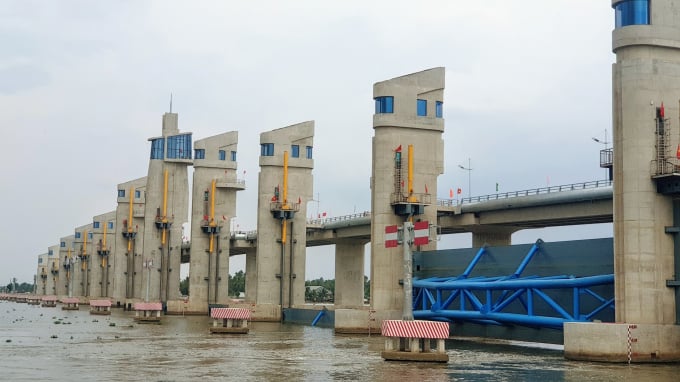
The integrated irrigation system has a positive impact on rice production in the Mekong Delta. Photo: Kim Anh.
n this autumn-winter crop of 2022, MARD plans to sow 700,000 ha. Specific division according to each deep-flooded ecological zone is expected to reach 415 thousand ha. The shallow flooded area carries a lot of alluvium from the Tien and Hau rivers, which is convenient for three crops. The sowing area expected here is about 154 thousand ha. For coastal areas, the sowing area is about 131 thousand ha. Key rice varieties for export such as OM5451, OM18, and OM4900 should account for 50-60%.
To implement the plan effectively, MARD recommends that localities and farmers need to adhere to the seasonal schedule. The autumn-winter rice crop needs to end by August 2022. The time interval between two rice crops needs to be extended, and farmers need to keep good hygiene in the field.
Translated by Hoang Duy
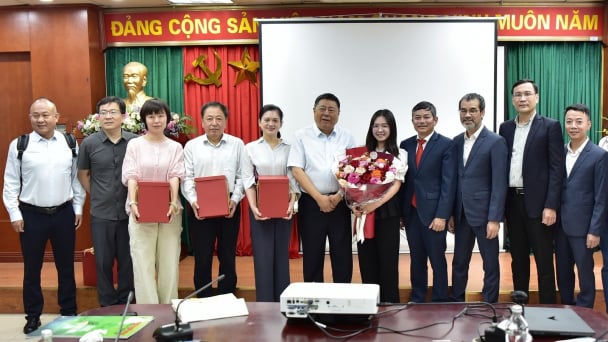
(VAN) The alignment in goals and operational direction between the Vietnam Agriculture and Nature Newspaper and Shaanxi Daily opens up promising prospects for journalism and media cooperation.
/2025/05/26/3422-3-102748_432.jpg)
(VAN) Prime Minister Pham Minh Chinh has been honored as the Distinguished ASEAN Leader at the ASEAN Leadership and Partnership Forum (ALPF) 2025 held in Malaysia, affirming Vietnam’s role and reputation.
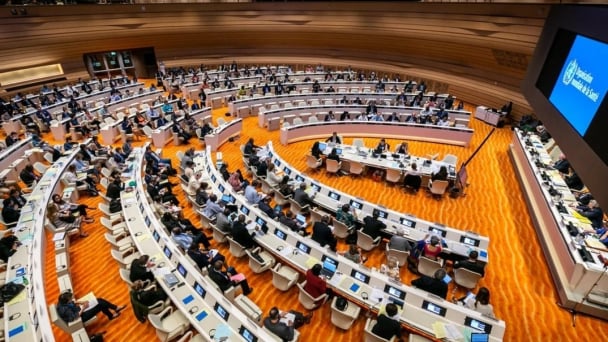
(VAN) At WHA78, with health placed at the heart of the global climate storm, Viet Nam enters a new commitment to protect communities from increasingly severe risks.
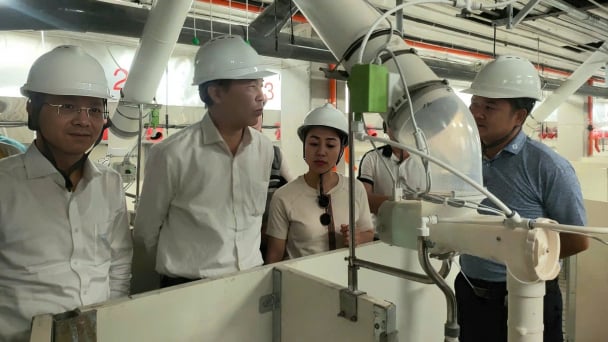
(VAN) Despite investment costs being 1.5 to 1.8 times higher than conventional methods, multi-story pig farming demonstrates outstanding effectiveness, increasing land-use efficiency by 4 to 10 times.
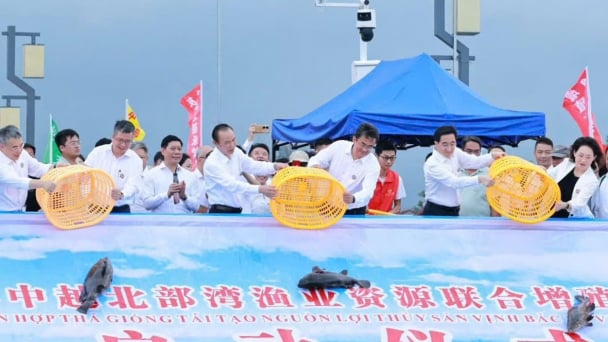
(VAN) Deputy Minister of Agriculture and Environment Phung Duc Tien leads a working delegation to participate in several key activities in China aimed at promoting agricultural and fisheries cooperation.
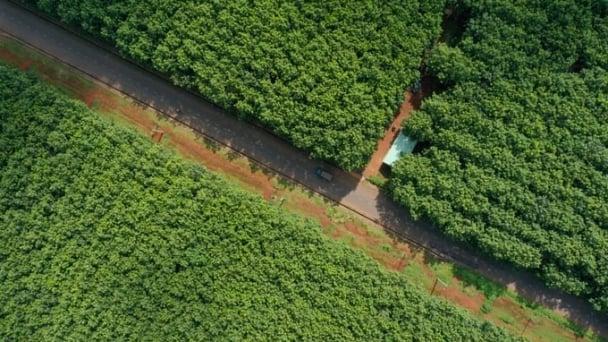
(VAN) The European Commission has just released a list of ‘low-risk’ countries for deforestation, which includes Vietnam.

(VAN) The convenience of single-use plastics is leaving lasting consequences for the oceans.